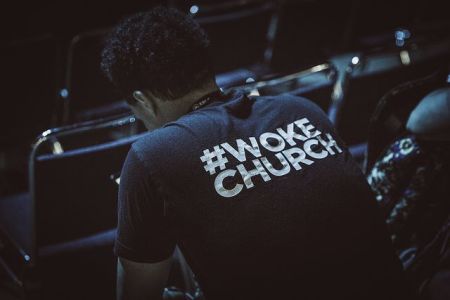Fewer pastors now willing to preach sermons on race, study shows

Despite massive protests in 2020 against police brutality and racial injustice following the death of George Floyd, fewer pastors, particularly white congregation leaders, say they are willing to preach sermons on race compared to 2020, a new report from LifeWay Research has found.
The study, which was based on a survey of 1,007 Protestant pastors conducted Sept. 2 – Oct. 1, 2020, showed that only 74% of pastors agree that their congregation would welcome a sermon on racial reconciliation. Of that number, only 32% strongly agreed.
In 2016, however, some 90% of pastors said their church would welcome a sermon on racial reconciliation, with 57% strongly agreeing.
A small minority of pastors, 5%, who said they were criticized for a sermon on racial reconciliation, have also seen their numbers more than double to a sizable 12%. The number of pastors who said they had not preached on racial reconciliation in the last two years increased, too, from 10% to 16% over the same period.
“The typical pastor is addressing racial reconciliation from the pulpit and without pushback from their congregation,” Scott McConnell, executive director of LifeWay Research, said in a statement Tuesday. “However, the noticeable increase in pastors avoiding the topic and receiving criticism could signal there are new dynamics emerging.”
While the concept of racial reconciliation is expressed in different ways in specific communities in the U.S., the website Racial Equity Tools explains that it includes public acknowledgement of racist events and crimes such as apartheid or violence against groups of color.
The process "may also examine and make public the current impact of such events, as well as their historical occurrence," Racial Equality Tools states. Individual victims can also be allowed to "tell their stories for the record as one part of a healing process" while "individual perpetrators might also acknowledge their complicity. Formal and serious apologies are also often part of this work where victims can choose to accept or reject that apology."
“While most pastors’ teaching is not limited to things their congregation wants to hear, it is helpful to know the reaction pastors anticipate from their congregation,” McConnell said. “Instead of a majority strongly agreeing, now only a third of pastors have no hesitation that their congregation would welcome a sermon on racial reconciliation.”
African American pastors, 93%, and pastors of other ethnicities, 74%, were more likely than white pastors to say their congregations would be open to a sermon on racial reconciliation.
Churches with 250 or more members were also more open to addressing the issue at the pulpit while denominationally, Methodists, 83%; Presbyterian/Reformed, 79%; Pentecostals, 78%; and Baptists, 74%, were found to be more likely than pastors of Lutheran churches, 59%, to believe their congregation would like to hear a sermon on the subject.
A Barna report released in September 2020 found that white, self-identified Christians in the United States have become less motivated to address racial injustice and are less likely to believe that the country has a race problem compared to 2019.
It found that just 33% of white self-identified Christians believe that the U.S. “definitely” has a race problem, down from 40% last year.
Some 81% of black self-identified Christians agreed, however, that the nation “definitely” has a race problem, up from 75% in 2019. Hispanic self-identified Christians stayed about the same, with 54% responding “definitely” in 2019, and 55% responding the same in 2020.
The number of white self-identified Christians who felt “very motivated” to address racial injustice also dropped from 14% to 10% over the period.





















